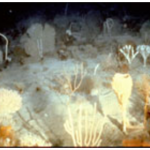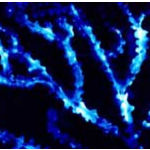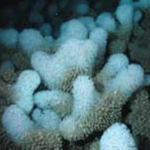The United Nations Secretary General’s Review of measures by states to protect vulnerable deep-sea life from destructive fishing practices such as high seas bottom trawling has confirmed these areas receive woefully inadequate protection (1). The Review was released last night in New York. “It’s taken two years for this UN review to confirm what everyone knew already: that deep-sea life and vulnerable habitats like cold water corals are being wiped out by a relatively few number of extremely destructive fishing vessels.
coral
Deep-water sharks join the ranks of species facing extinction, together with polar bears and the hippopotamus, listed on the World Conservation Union’s 2006 Red List of Threatened Species. The World Conservation Union (IUCN) Red List, released on 2 May 2006 in Switzerland, is the world’s most authoritative inventory of the conservation status of animals and plants.
Continue reading Deep-water sharks, polar bears and hippopotamus face extinction
The North East Atlantic Fisheries Commission (NEAFC) has failed to further reduce fishing effort on vulnerable deep-sea fish stocks and to protect cold-water coral reefs from deep sea bottom trawling, against the recent advice of scientists.
Continue reading NEAFC fails to protect vulnerable deepwater fish and corals from bottom trawling
58 Australian marine scientists have sent a letter to the Australian Prime Minister, John Howard urging him to “take advantage of an historic opportunity to secure significant protection for the world’s deep-ocean ecosystems on the high seas” by promoting the negotiation of a moratorium on high seas bottom trawling at this year’s United Nations General Assembly. (1) A week earlier, over 100 international marine scientists, conservationists and biodiversity experts attending the International Marine Protected Areas Congress (IMPAC1) sent a letter to Australian Ministers for the Environment and Fisheries, Senators Ian Campbell and Ian MacDonald, urging them to stop deep sea destruction by supporting a moratorium on high seas bottom trawling. (2) The letter was also sent to Heads of State attending the Pacific Islands Forum and delegates to the Commission on the Conservation of Antarctic Marine Living Resources (CCAMLR), which met last week in Hobart.
Continue reading Scientists call on Australia to support the moratorium
Records of Lophelia pertusa from inshore UK waters go back to Victorian times when this deep sea coral was described in fishermen’s reports. In the 1900s a fine specimen reached Glasgow University’s Hunterian Museum from a long-line fisherman operating in the Minch and the Sea of the Hebrides to the west of Scotland. In the late 1960s a dredger turned up dead coral east of Mingulay, and John Wilson saw Lophelia colonies on a seabed ridge during pioneering manned submersible dives in 1970. In 1999 David Long, of the British Geological Survey (BGS), and Murray Roberts, of the Scottish Association for Marine Science (SAMS) began to wonder whether there were still live Lophelia reefs in the Minch.
Continue reading The Lophelia reefs of the Minch
The latest discovery of underwater life in abundance – coral forests at 1000 metres deep – was released today in Vienna at a conference (1) of marine biologists, underlining recent calls to take a time-out on trawl fishing of the ocean bottom until scientists can accurately assess the real richness of deep sea life and its resources. Scientists outlined new research from the US Government National Oceanic and Atmospheric Administration’s (NOAA) Office of Ocean Exploration 2002 and 2004 Gulf of Alaska Seamount Expeditions. Marine ecologists collected and described a new species of deep sea fan (2), or gorgonian, called a “bamboo coral” from a dozen mountains in the sea between Santa Barbara, California and Kodiak, Alaska, USA, suggesting the animal occurs on peaks throughout the Pacific Ocean.
Continue reading Oceans unveil how little is known
In a recent press release, New Zealand’s Seafood Industry Council seeks to draw attention from the growing support for a moratorium on high seas bottom trawling by downplaying and distorting the wealth of existing scientific evidence that demonstrates the destructive nature of high seas bottom trawling – including data from New Zealand’s own National Institute of Water and Atmospheric Research (NIWA). The Deep Sea Conservation Coalition welcomes the Seafood Industry Council’s acknowledgement that “there can be little doubt that trawling has an effect on the benthic environment”. (1)
Continue reading DSCC to New Zealand bottom trawl fishing industry – get your facts straight
It isn’t, on the face of it, a hard case to make. In fact, it would seem obvious: dragging bottom trawls, complete with giant steel doors and rollers, across the sea bed is bound to be immensely damaging to the deep sea habitat and the species that live there. As far back as 1376, fishermen from the Thames Estuary petitioned king Edward III of England to ban primitive trawl nets that they feared could cause “great damage of the common’s realm and the destruction of the fisheries.”
Continue reading Such a hard case to make?
Greenpeace’s ship, the Rainbow Warrior has left Auckland for international waters around New Zealand to highlight the destructive impacts of bottom trawling. The tour follows up on an expedition last year in which Greenpeace documented New Zealand and Belize bottom trawlers operating in the Tasman Sea. Dave Walsh, web editor onboard the Rainbow Warrior again this year, gave the following account of the 2004 expedition that followed the activities of seven ships as they trawled seamounts for target species of orange roughy.
A report released by Marine Conservation Biology Institute (MCBI) and Natural Resources Defense Council (NRDC), suggests that deep sea life holds major promise for the treatment of human illnesses (1). But scientists are increasingly concerned that bottom trawling may be destroying medically beneficial species before they are even discovered.
Continue reading Potential cancer cures from the deep sea threatened by high seas bottom trawling










